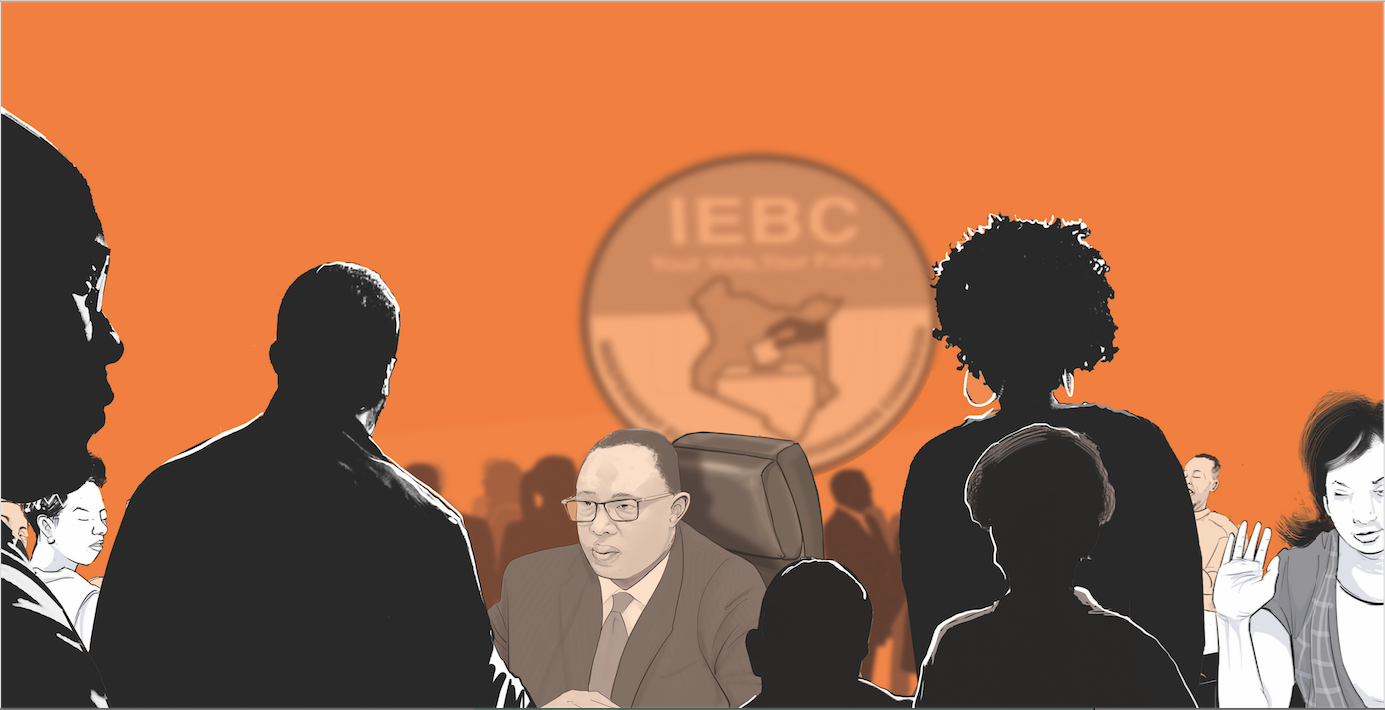
How confident are Kenyans in IEBC?
What came out during a survey
The true test will be whether this openness is sustained when the commission faces contentious decisions under electoral pressure.
In Summary

Audio By Vocalize

Kenya’s democracy stands on the fragile pillar of trust in its electoral commission. Last week at Maanzoni Lodge, where over 91 political parties met the newly constituted Independent Electoral and Boundaries Commission, the central question was simple but profound: can this commission win back the public’s confidence?
The meeting, led by the commission’s new chairman, Erastus Ethekon, alongside all the recently appointed commissioners and senior secretariat staff, was more than a ceremonial event. It was an urgent attempt to confront a foundational crisis: years of public distrust from political interference, operational missteps and the constitutional vacuum left by a commission without commissioners.
Even the Supreme Court recently underscored this “deep-seated trust deficit”. What was at stake in Maanzoni was not just procedure, but whether this new team understands its primary mandate—to rebuild credibility through consistent, transparent and meaningful engagement with stakeholders, beginning with political parties as the proxies of the electorate.
The commission’s handling of the upcoming November by-elections will be its first real test. Trust will hinge not on broad promises but on granular details: fair nomination of candidates, impartial polling officials, transparent result transmission and quick resolution of disputes raised by party agents.
If these smaller contests are conducted with rigour and fairness, they could lay a critical foundation of credibility for the 2027 general election. But if they are marred by bias or incompetence, they will only entrench suspicion. The IEBC must seize this chance to show that its decisions are driven by law and procedure, not political pressure.
The most politically sensitive issue—the overdue boundary review—was not on the day’s agenda, but its shadow loomed large. Whether the delimitation of electrical boundaries will happen remains the question. The Supreme Court has advised that delimitation is a constitutional duty that requires a fully constituted commission. This process cannot be a closed-door technocratic exercise.
To build trust, the IEBC must craft an open, evidence-based and consultative process that invites scrutiny from parties, civil society and citizens alike. Transparent communication of its roadmap, including the data and criteria it will use, would be the single strongest demonstration of independence. Any secrecy or perceived manipulation of boundaries would be fatal to its legitimacy.
The planned rollout of Continuous Voter Registration offers the first major nationwide interaction between citizens and the new IEBC. Here, trust will be earned—or lost—in the details. Will registration kits reach remote villages? What safeguards will prevent fraud and duplication? How will the register be audited, and how will parties verify the data?
With millions of young Kenyans waiting to be enfranchised, the voter register is not just a technical list—it is the backbone of representation. Any gaps in access or perceived bias in certain regions will be interpreted as bad faith. A transparent, inclusive and verifiable voter registration is non-negotiable.
Perhaps the most promising outcome from Maanzoni was the commission’s commitment to institutionalised dialogue with political parties. Sporadic meetings cannot suffice; predictable, structured engagement must become part of the commission’s culture.
Strengthening the Political Parties Liaison Committee as a robust consultative forum, providing timely access to critical electoral information and creating clear channels for dispute resolution are essential steps. The true test will be whether this openness is sustained when the commission faces contentious decisions under electoral pressure.
The Maanzoni engagement was a necessary first step. Rebuilding the IEBC’s battered legitimacy is a marathon, not a sprint. Every by-election conducted impartially, every voter registered transparently and every consistent dialogue with stakeholders will lay the concrete for a bridge of trust.
The commissioners must recognise that their greatest responsibility is not simply to administer elections, but to restore faith in the process itself. Both government and opposition parties have in the past questioned the IEBC’s integrity. This new team has the chance to write a different story—one where elections are decided by voters, not by mistrust.
Strategic advisor, political commentator, and expert in leadership and governance

What came out during a survey